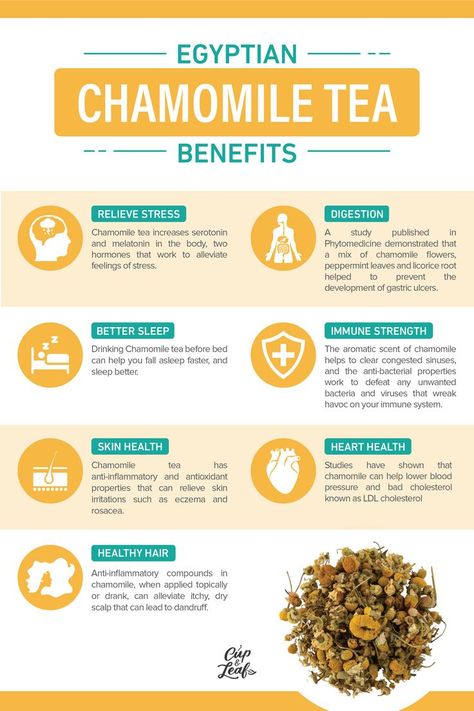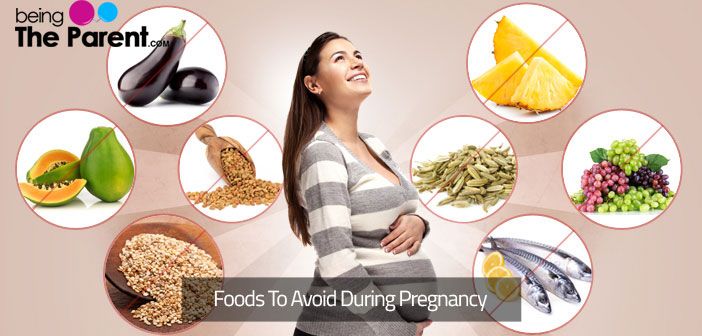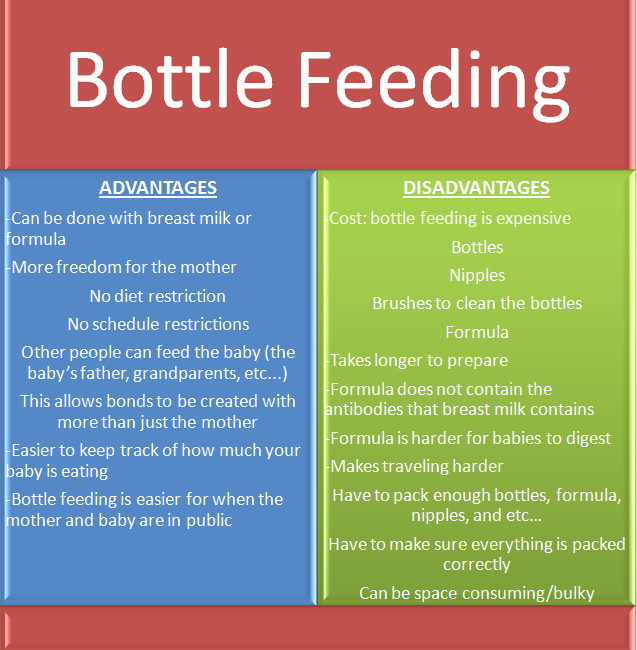Chamomile tea pregnancy benefits
Top 5 reasons to drink chamomile tea during pregnancy – MaterniTea
What is Chamomile Tea?
Chamomile tea is made using the flowers or buds of the German or Roman chamomile plant, although the German chamomile is the one that is more commonly used. The flower heads are cut and then sun-dried before being used in a herbal tea.
Benefits Of Having Chamomile Tea in Pregnancy
Chamomile has several health benefits like relieving muscular pain, helping insomnia, soothing cramps, and remedying runny noses. Moderate amounts of chamomile tea can be beneficial for women during pregnancy in the following ways.
1. Helps get a good night sleep
A small cup of chamomile tea before bed calms the nervous system, helping you wind down and sleep much better. Chamomile has a soothing and mild sedative effect, which is safe and helps with the common pregnancy insomnia.
2. Improves Resistance and Immunity
During pregnancy your immune system deliberately lowers as to not reject your baby. However, this can leave you more susceptible to illness. Chamomile contains nutrients that help the body fight off infections and increase resistance to diseases. Drinking chamomile tea helps boost the immune system and prevents germs from invading the body.
3. Relieves Muscular Aches & Pains
As your body is constantly expanding and stretching to accommodate your growing baby, its very common to feel sore and get cramps. Chamomile tea helps relieve muscle pain and cramps by increasing the amount of the amino acid glycine in the body. Glycine can act as a muscle and nerve relaxant, therefore soothing those poor stressed muscles and ligaments. It also calms you down and reduce anxiety by relaxing your nerves.
4. Dental Hygiene
Because of the pregnancy hormones and increased blood being pumped through your body including your gums during pregnancy, mouth sores and gum infections are quite common. However, can be potential life threatening to the baby if left untreated.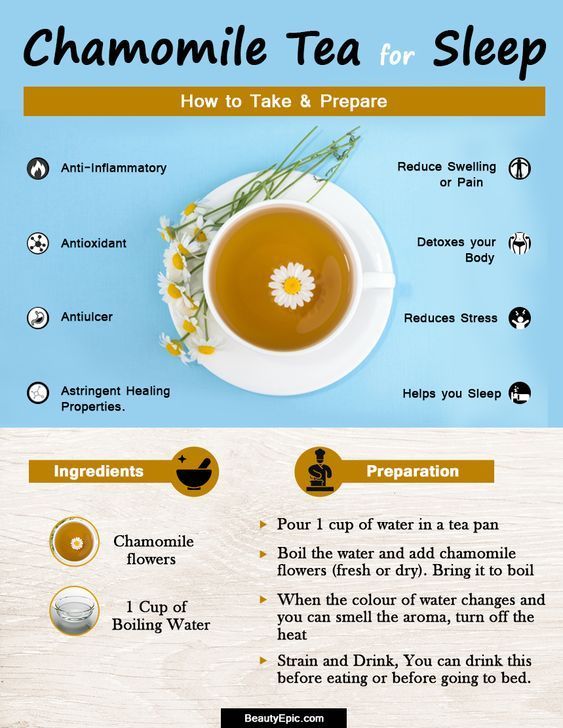 Chamomile tea can help protect and treat mild mouth ulcers when used as mouthwash. Rinse your mouth with the tea and spit out twice a day to see a reduction in the number of mouth sores.
Chamomile tea can help protect and treat mild mouth ulcers when used as mouthwash. Rinse your mouth with the tea and spit out twice a day to see a reduction in the number of mouth sores.
5. Aids in Digestion and Lessens Morning Sickness:
The pregnancy hormone progesterone can slow the digestive system down, causing it to become sluggish. The effects of this can include, bloating, heartburn, constipation and excess wind. Chamomile is soothing to he digestive system. It can soothe the stomach and relieve these common side effects.
It contains anti-inflammatory agents that can reduce inflammation in the digestive tract. A small cup of chamomile tea also soothes you and helps reduce nausea caused by morning sickness.
Whilst Chamomile Tea can be found almost anywhere, the quality of the herb is whats important to receiving these benefits.
Most supermarket blends you can buy will be the finely crushed dust or chopped pieces of the flower, not necessarily the quality therapeutic of the bud.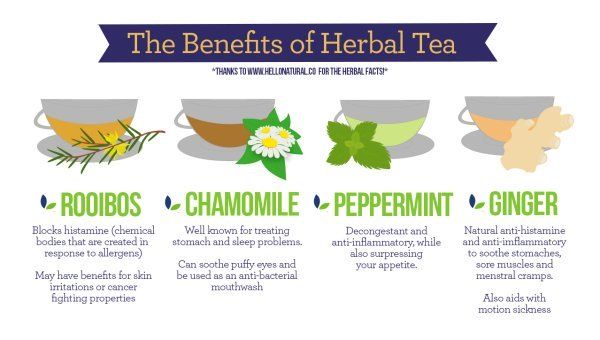 Try to find chamomile tea where the whole flower is in tact, like in our SereniTea and BambiniTea Blends.
Try to find chamomile tea where the whole flower is in tact, like in our SereniTea and BambiniTea Blends.
Is It Safe to Drink?
Chamomile Tea While Pregnant: Is It Safe to Drink?- Health Conditions
- Featured
- Breast Cancer
- IBD
- Migraine
- Multiple Sclerosis (MS)
- Rheumatoid Arthritis
- Type 2 Diabetes
- Articles
- Acid Reflux
- ADHD
- Allergies
- Alzheimer's & Dementia
- Bipolar Disorder
- Cancer
- Crohn's Disease
- Chronic Pain
- Cold & Flu
- COPD
- Depression
- Fibromyalgia
- Heart Disease
- High Cholesterol
- HIV
- Hypertension
- IPF
- Osteoarthritis
- Psoriasis
- Skin Disorders and Care
- STDs
- Featured
- Discover
- Wellness Topics
- Nutrition
- Fitness
- Skin Care
- Sexual Health
- Women's Health
- Mental Well-Being
- Sleep
- Product Reviews
- Vitamins & Supplements
- Sleep
- Mental Health
- Nutrition
- At-Home Testing
- CBD
- Men’s Health
- Original Series
- Fresh Food Fast
- Diagnosis Diaries
- You’re Not Alone
- Present Tense
- Video Series
- Youth in Focus
- Healthy Harvest
- No More Silence
- Future of Health
- Wellness Topics
- Plan
- Health Challenges
- Mindful Eating
- Sugar Savvy
- Move Your Body
- Gut Health
- Mood Foods
- Align Your Spine
- Find Care
- Primary Care
- Mental Health
- OB-GYN
- Dermatologists
- Neurologists
- Cardiologists
- Orthopedists
- Lifestyle Quizzes
- Weight Management
- Am I Depressed? A Quiz for Teens
- Are You a Workaholic?
- How Well Do You Sleep?
- Tools & Resources
- Health News
- Find a Diet
- Find Healthy Snacks
- Drugs A-Z
- Health A-Z
- Health Challenges
- Connect
- Breast Cancer
- Inflammatory Bowel Disease
- Psoriatic Arthritis
- Migraine
- Multiple Sclerosis
- Psoriasis
Medically reviewed by Debra Rose Wilson, Ph. D., MSN, R.N., IBCLC, AHN-BC, CHT — By Diana Wells on November 6, 2018
D., MSN, R.N., IBCLC, AHN-BC, CHT — By Diana Wells on November 6, 2018
Walk through any grocery store and you’ll find a variety of teas for sale. But if you’re pregnant, not all teas are safe to drink.
Chamomile is a type of herbal tea. You might like to enjoy a soothing cup of chamomile tea on occasion. But some doctors recommend limiting your herbal tea consumption during pregnancy. Here’s a look at the health benefits and risks.
There are two main types of tea: herbal and non-herbal. Non-herbal teas are made from the leaves of tea plants. They contain caffeine. Even the decaffeinated forms contain some caffeine.
It’s generally recommended that pregnant and breastfeeding women stay away from, or at least limit, the amount of caffeine that they consume each day. This is because a developing baby can’t process caffeine in their system as well as an adult.
This recommendation includes any kind of caffeine, and not only the caffeine in tea. There’s caffeine in foods and drinks including chocolate, coffee, and soda.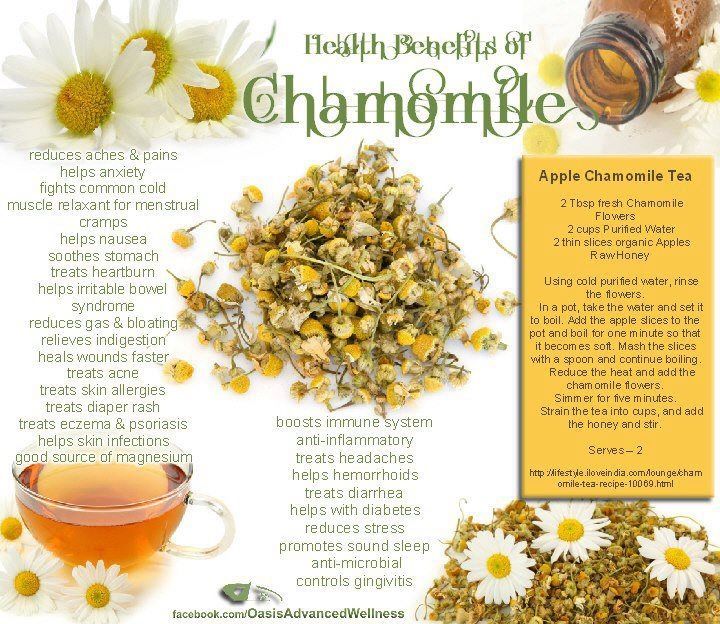 If you consume more than one source of caffeine per day during your pregnancy, you’re increasing the amount of caffeine in your system.
If you consume more than one source of caffeine per day during your pregnancy, you’re increasing the amount of caffeine in your system.
Therefore, it’s important to be aware of all sources of caffeine.
The following categories include teas that are non-herbal and contain high amounts of caffeine:
- black
- green
- oolong
Green tea might be a good choice. Be aware of caffeine intake when pregnant and keep intake to a moderate amount.
What is herbal tea?
Herbal teas are made from various parts of plants. They are made from a plant’s roots, berries, and seeds. True herbal teas are naturally caffeine-free. Read the label to find out about any teas you aren’t sure of.
Not all herbal teas are considered safe for pregnant women by the U.S. Food and Drug Administration (FDA). This is mostly because of the types of herbs used and the amount of studies that the FDA has been able to conduct with pregnant women.
Chamomile tea looks similar to and is related to the daisy.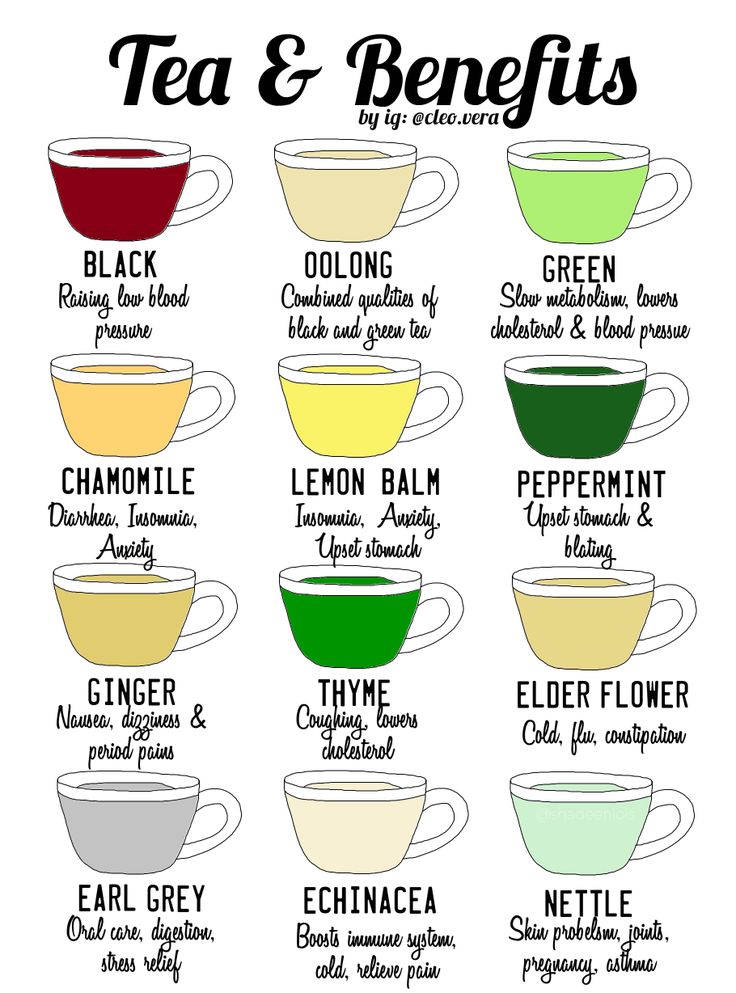 There is German or Roman chamomile. It has been used since the time of ancient Egypt. The one used most often is German chamomile.
There is German or Roman chamomile. It has been used since the time of ancient Egypt. The one used most often is German chamomile.
For most people, drinking chamomile tea has health benefits. These include a dose of antioxidants, help with sleep, and anti-inflammatory properties.
Chamomile tea is known to have a calming effect and help prevent colds and other illnesses. Plus, drinking tea of any kind can help keep your body hydrated.
Still, many doctors use caution in relation to pregnant women drinking herbal teas, including chamomile. This is simply because there haven’t been enough studies conducted to ensure their safety.
Chamomile tea contains anti-inflammatory agents. These may be dangerous during pregnancy. It depends on your medical history, how much you consume, and other factors.
It’s important to remember that not all herbal teas are the same, and there are those that doctors tell their pregnant patients to stay away from.
As with anything in your diet during pregnancy, discuss drinking chamomile tea with your doctor. Some doctors may suggest limiting the amount you drink, while others may prefer that you not drink it at all.
Some doctors may suggest limiting the amount you drink, while others may prefer that you not drink it at all.
You also want to be sure to use commercially prepared chamomile tea if you choose to drink it during your pregnancy. Herbal teas that are commercially processed use herbs from safe sources.
You may have heard that chamomile tea can induce labor. But there isn’t currently any medical evidence to support this.
There are some herbal teas that doctors warn against in early pregnancy. These include blue cohosh and black cohosh teas.
Some herbal teas are considered safer than others for pregnant women. Nettle tea is used in many herbal teas and is generally considered to be pregnancy-safe. While some midwives may advise drinking red raspberry leaf tea, there is no strong evidence of its benefits for pregnant women, and a 2019 study suggested it may have adverse effects on pregnancy outcomes.
During pregnancy, you should stay away from any herbal teas that are marketed for weight loss or dieting, or those that can be used as laxatives.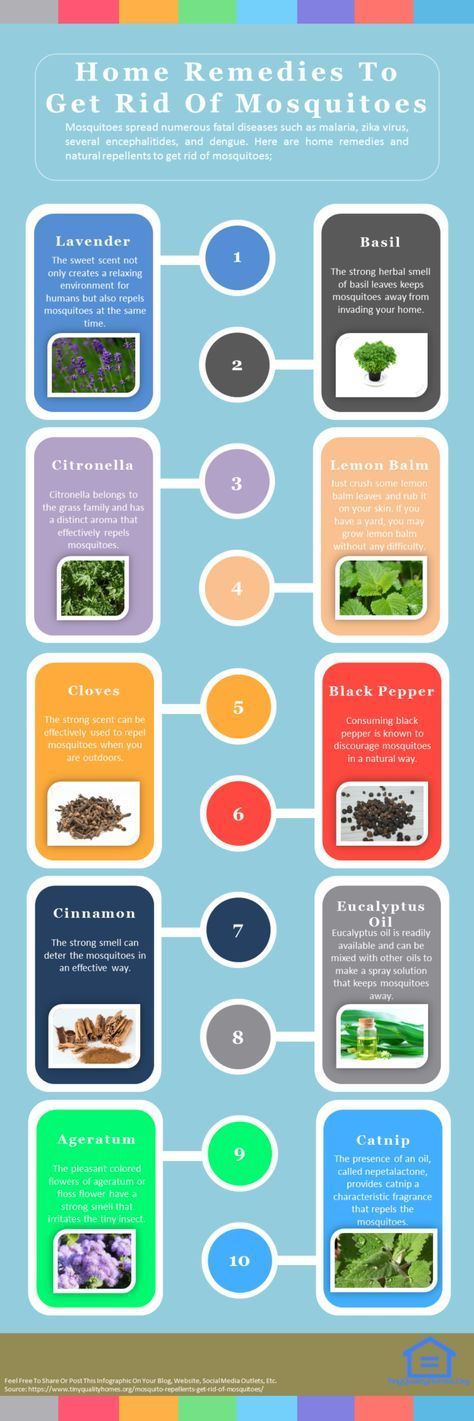 Also, don’t drink those that contain any type of nutritional supplement. This is because the supplements can cause complications or interactions with other medications.
Also, don’t drink those that contain any type of nutritional supplement. This is because the supplements can cause complications or interactions with other medications.
Keep in mind that even herbal teas labeled as “pregnancy teas” haven’t had enough studies done on them to be considered completely safe during pregnancy. Ask your doctor before trying out new types of tea.
To date, there haven’t been enough studies conducted on herbal teas and pregnancy. That means the jury is still out on whether drinking chamomile tea during pregnancy is safe.
Always use caution and ask your doctor about drinking herbal teas. Many common teas might be a poor choice when pregnant. Your doctor can recommend pregnancy-safe beverages for you to stay hydrated for the next nine months.
Last medically reviewed on November 6, 2018
- Parenthood
- Pregnancy
- Pregnancy Health
How we reviewed this article:
Healthline has strict sourcing guidelines and relies on peer-reviewed studies, academic research institutions, and medical associations. We avoid using tertiary references. You can learn more about how we ensure our content is accurate and current by reading our editorial policy.
We avoid using tertiary references. You can learn more about how we ensure our content is accurate and current by reading our editorial policy.
- American College of Obstetricians and Gynecologists. (2010). ACOG CommitteeOpinion No. 462: Moderate caffeine consumption during pregnancy. DOI:
10.1097/AOG.0b013e3181eeb2a1 - Balbontín YM, et al. (2019). Herbal medicinal product use during pregnancy and the postnatal period.
ncbi.nlm.nih.gov/pmc/articles/PMC6485309/ - Drinking herbal tea during your pregnancy. (2018).
americanpregnancy.org/pregnancy-health/herbal-tea/ - Kennedy DA, et al. (2016). Safety classification of herbal medicines used in pregnancy in a multinational study. DOI:
10.1186/s12906-016-1079-z - Lindblad AJ, et al. (2016). Ginger for nausea and vomiting of pregnancy.
cfp.ca/content/62/2/145 - Mayo Clinic Staff. (2017). Pregnancy nutrition: Foods to avoid during pregnancy.
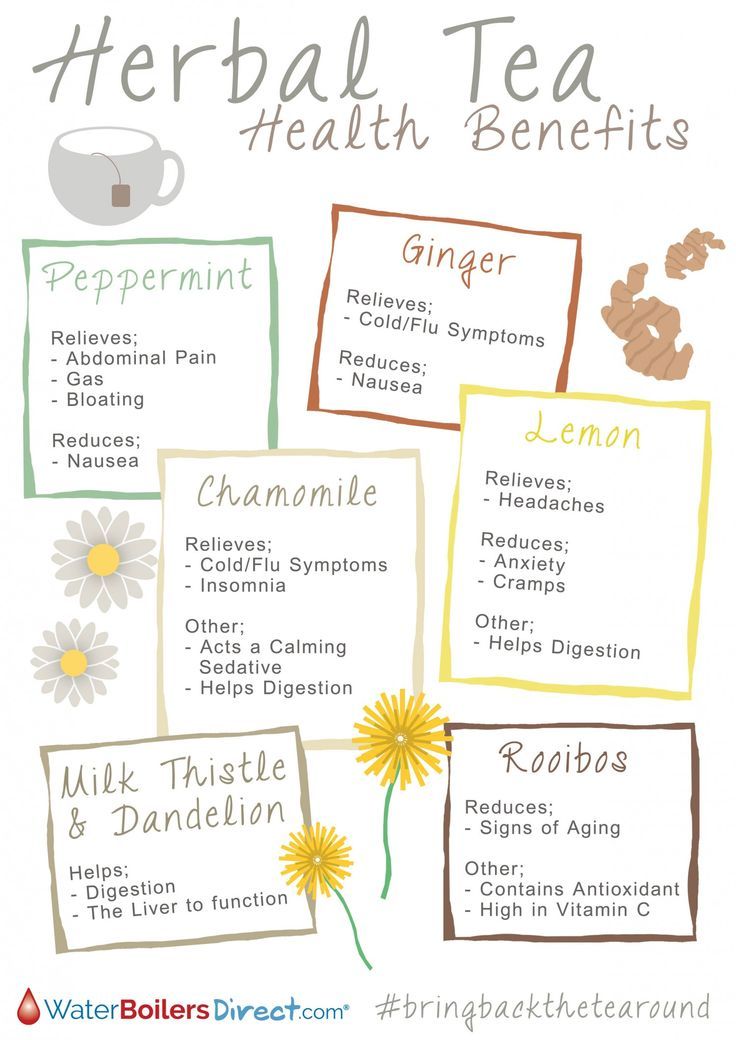
mayoclinic.org/healthy-lifestyle/pregnancy-week-by-week/in-depth/pregnancy-nutrition/art-20043844?pg=2 - Thomson M, et al. (2014). Effects of ginger for nausea and vomiting in early pregnancy: A meta-analysis.
jabfm.org/content/27/1/115.short - Viljoen E, et al. (2014). A systematic review and meta-analysis of the effect and safety of ginger in the treatment of pregnancy-associated nausea and vomiting. DOI:
10.1186/1475-2891-13-20
Our experts continually monitor the health and wellness space, and we update our articles when new information becomes available.
Current Version
Nov 6, 2018
Written By
Diana Wells
Edited By
Phil Riches
Medically Reviewed By
Debra Rose Wilson, PhD, MSN, RN, IBCLC, AHN-BC, CHT
Share this article
Medically reviewed by Debra Rose Wilson, Ph.D., MSN, R.N., IBCLC, AHN-BC, CHT — By Diana Wells on November 6, 2018
related stories
11 Things to Avoid During Pregnancy - What Not to Do
11 Foods and Beverages to Avoid During Pregnancy - What Not to Eat
Can I Drink Green Tea While Pregnant?
What Exercises Are Safe in the First Trimester?
The Second Trimester: Concerns and Tips
Read this next
11 Things to Avoid During Pregnancy - What Not to Do
Medically reviewed by Katie Mena, MD
You know you’re not supposed to drink alcohol or use drugs during pregnancy, but what else is off-limits? Here’s a list of 11 things not to do while…
READ MORE
11 Foods and Beverages to Avoid During Pregnancy - What Not to Eat
By Adda Bjarnadottir, MS, RDN (Ice)
Certain foods can be very harmful for pregnant women and their babies.
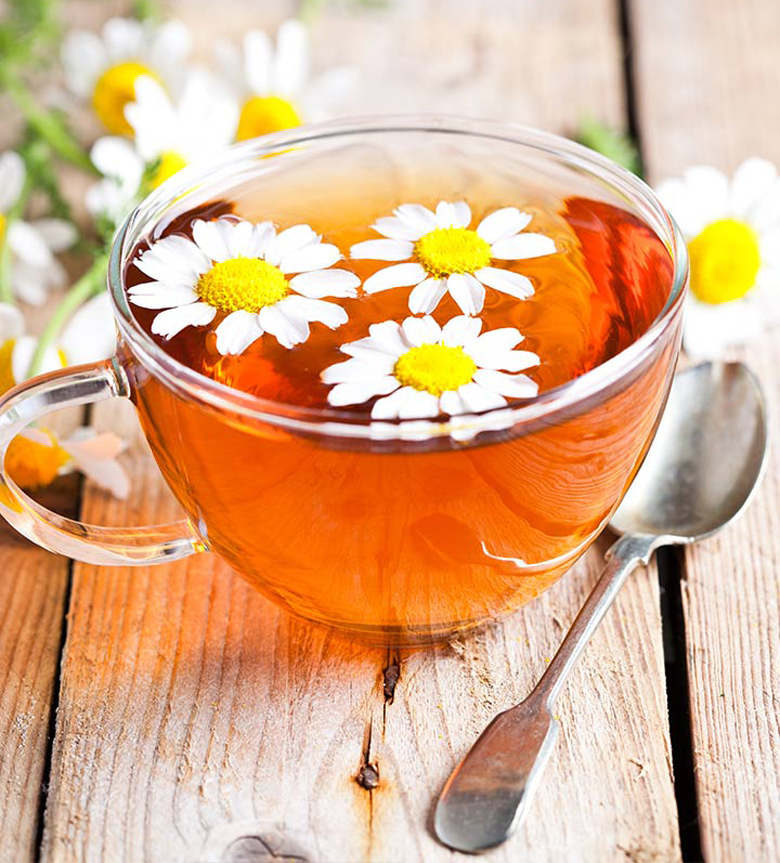 This is a list of 11 foods and drinks that pregnant women should avoid.
This is a list of 11 foods and drinks that pregnant women should avoid. READ MORE
Can I Drink Green Tea While Pregnant?
You know you should limit how much coffee you drink while pregnant, but what about green tea? Here’s what you need to know.
READ MORE
What Exercises Are Safe in the First Trimester?
Staying healthy and fit when you're pregnant is one of the best things you can do for yourself and your baby. Learn about some of the exercises you…
READ MORE
The Second Trimester: Concerns and Tips
Medically reviewed by Janine Kelbach, RNC-OB
Read tips to help you address some concerns you may have about the second trimester of pregnancy.
READ MORE
Food Safety During Pregnancy
Medically reviewed by Kimberly Dishman, MSN, WHNP-BC, RNC-OB
Some foods contain toxins that are harmful to pregnant women and their developing baby.
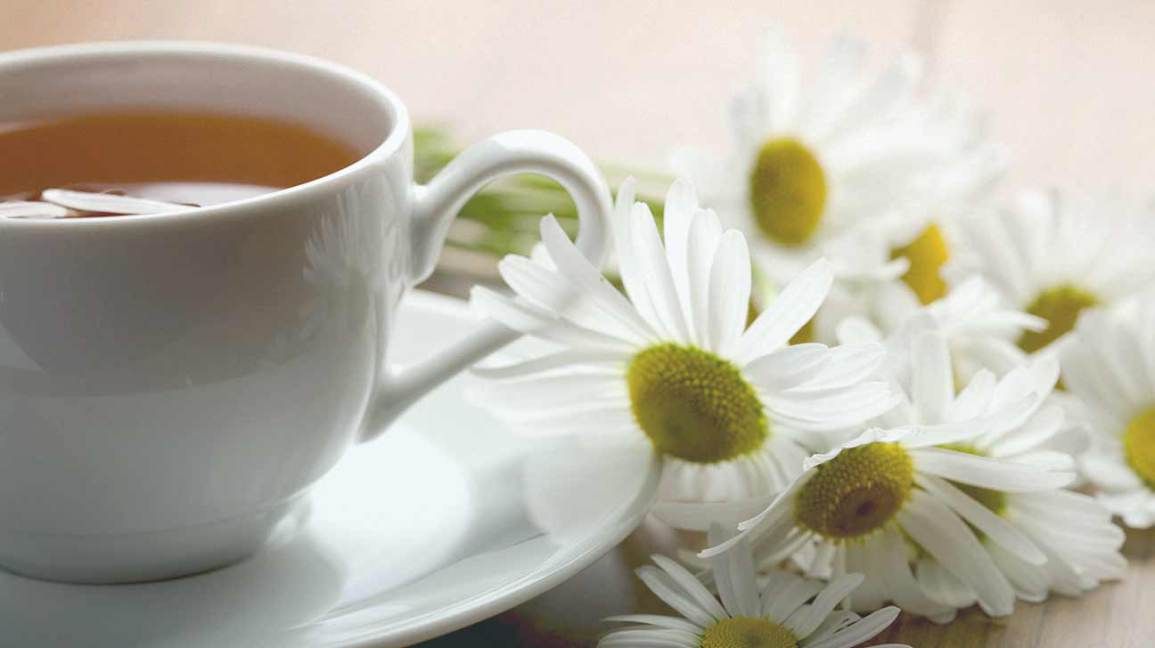 Read more about these toxins and how to avoid them.
Read more about these toxins and how to avoid them.READ MORE
Common Concerns During Pregnancy
Medically reviewed by Nicole Galan, RN
It's natural to have many questions and concerns about your pregnancy, especially if it's your first. Find answers and helpful tips here.
READ MORE
Pregnancy Recommendations Around the World
Medically reviewed by Steve Kim, MD
Pregnancy recommendations differ a lot depending on the country where you plan to give birth.
READ MORE
7 Books That Shine a Light on Pregnancy
For everything from what to eat during pregnancy to how to plan for birth and what comes after, check out these best pregnancy books!
READ MORE
Pregnancy Friendly Recipe: Creamy White Chicken Chili with Greek Yogurt
This pregnancy-friendly spin on traditional chili is packed with the nutrients your body needs when you're expecting.
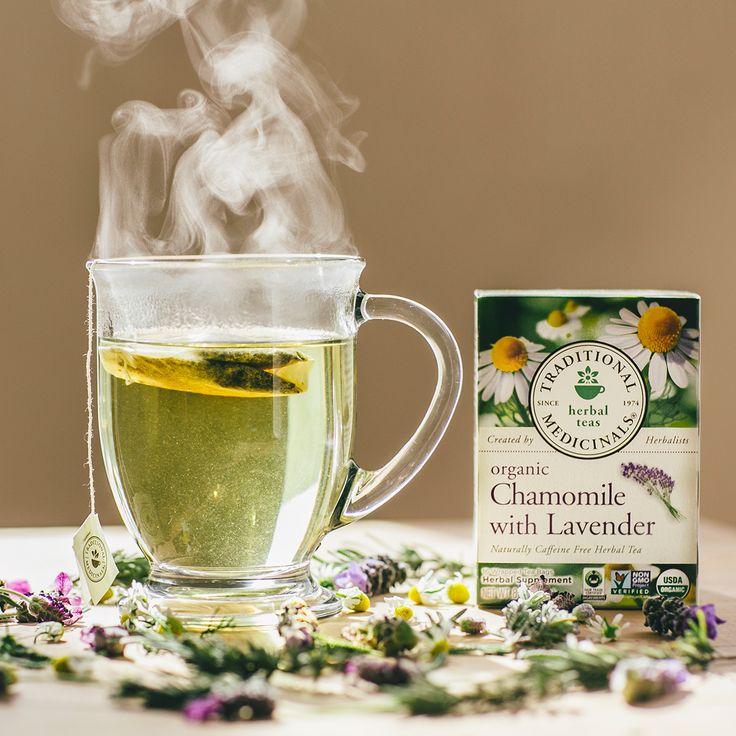
READ MORE
Is it possible to drink tea during pregnancy and which varieties to pay special attention to - an article on TCHK
During pregnancy, women have a lot of questions about what they can and cannot do. Including many, it is important to know how to build their relationship with tea during an interesting situation. What is the best tea for pregnant women? How much and when? In this article, we have collected all the most important information regarding this issue.
Classic tea during pregnancy (black, green, pu-erh, etc.)
If you like to drink black tea, during pregnancy you should remember that this drink contains caffeine, and the norm of this substance for a pregnant woman is 200-300 mg per day. Of course, no one carries a special tea calculator in their pocket, and calculating exactly how much caffeine you get with each cup is quite difficult. That is why it is better to brew black tea weakly (by pouring for 10-15 seconds) or diluted with more water (if you prefer this method of preparation).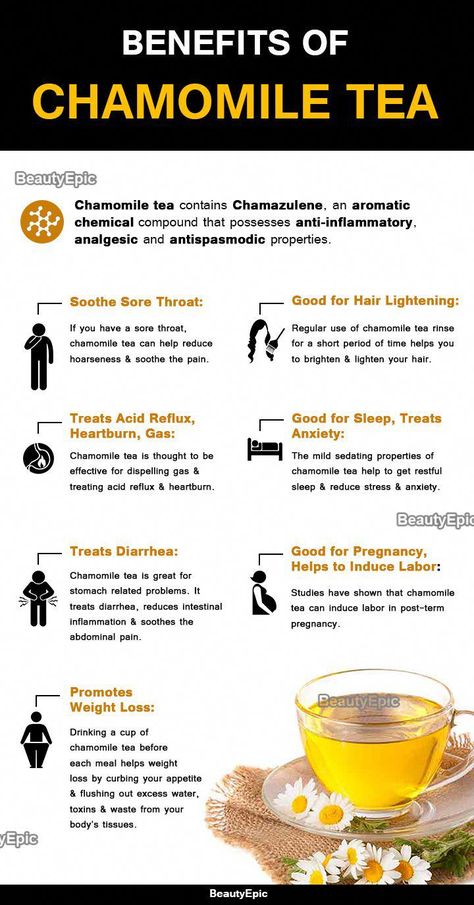
The same rules apply to those who like to drink green tea, as well as white, yellow, oolong and pu-erh. There is no less caffeine in these types of tea than in classic black (and even more in matcha). General medical advice for healthy women comes down to the advice not to drink more than 3 cups of regular tea made from the leaves of the tea bush.
Caffeine can easily cross the placenta and the baby's immature liver has difficulty breaking it down. Thus, infants are more likely to experience side effects from amounts of caffeine that would be considered safe for adults.
It is important to remember that caffeine is also found in many carbonated drinks, chocolate, cocoa and coffee itself. Therefore, when measuring for yourself the allowable amount of tea, consider other products that you consume per day.
Pregnancy tisanes
If you can give up traditional tea without loss of quality of life and mood, look at other types of drinks.
The undisputed leader in this hit parade is rooibos - tisane, which does not contain caffeine and is allowed for both pregnant and lactating women, as well as children.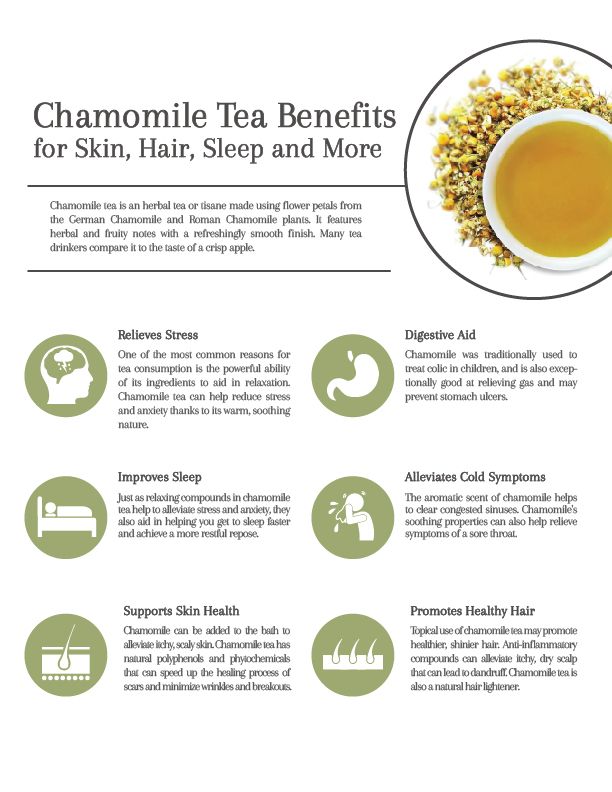 Hibiscus, kuqiao, anchan and ivan tea are also considered safe, but, like any herbal drinks, these tisanes should be alternated without getting carried away by any one type.
Hibiscus, kuqiao, anchan and ivan tea are also considered safe, but, like any herbal drinks, these tisanes should be alternated without getting carried away by any one type.
Herbal teas for pregnant women (herbal teas)
Although it is common to think that herbal teas are more beneficial for pregnant women than classic ones, this is actually a very controversial issue. As with the traditional tea leaf, a pregnant woman should use any herbal drink in moderation, as even the safest plants in large quantities can harm the baby.
The most useful herbal tea for pregnant women
You may be surprised, but this tea is made from raspberry leaves. Medical studies have shown that red raspberry leaf can be safely consumed during pregnancy. Many midwives and herbalists believe that regular consumption of raspberry leaf tea can help prevent pregnancy complications such as preeclampsia, preterm labor, prolonged labor and postpartum hemorrhage, as well as reduce the duration of labor and the number of interventions used, including caesarean section.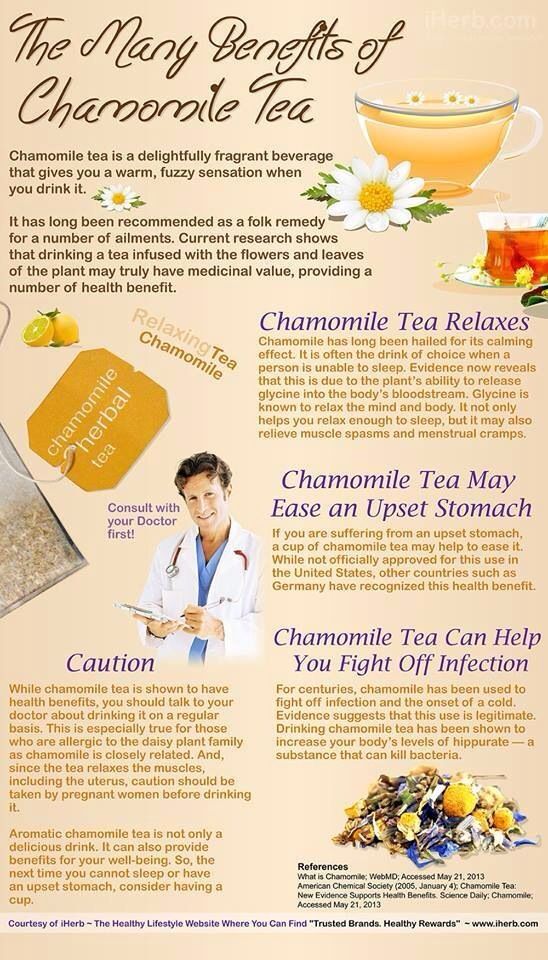 . In addition, raspberry leaf helps prevent too early or too late delivery.
. In addition, raspberry leaf helps prevent too early or too late delivery.
Teas for toxemia
For many women in early pregnancy (and sometimes longer) it is very important to find their own way to cope with nausea caused by toxemia. Properly selected tea can be a good way to solve this problem.
Tea with mint
The fresh cool aroma of mint becomes a real salvation for many pregnant women during toxicosis - the essential oils of this plant can alleviate the symptoms of the disease. Not recommended in the first trimester.
Ginger tea
Ginger root helps to relieve nausea and vomiting, it is also considered the first aid in toxicosis. Use with caution if you have stomach problems.
Chamomile tea
Chamomile tea also helps women suffering from toxicosis, and in addition, it has a positive effect on the nervous system and helps with thrush. Despite the fact that it is considered useful for pregnant women, you should not get carried away with it - an overdose can have an abortive effect.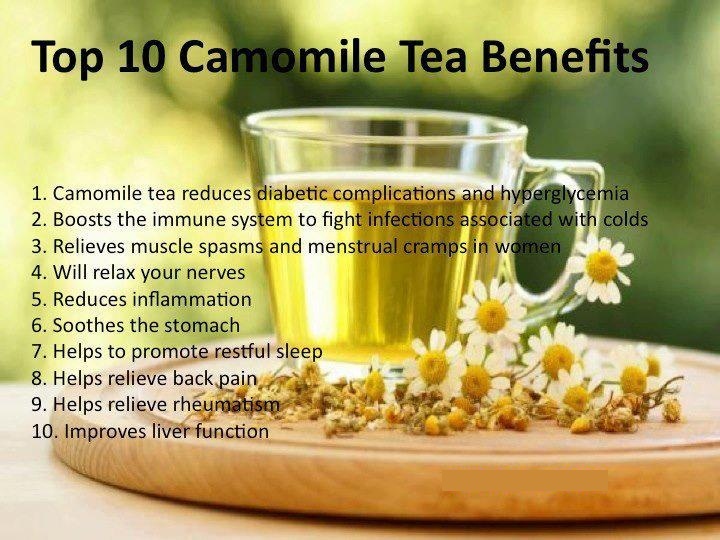
Healthy supplements for tea
It is very important for a pregnant woman to get the maximum amount of nutrients per day (without fanaticism, of course). That is why adding a little honey, berries or fruits to your tea can be a good idea.
Tea with lemon
This tea is worth drinking to prevent the symptoms of toxicosis and overall strengthening of the immune system. Not recommended if a woman has stomach problems (gastritis, heartburn, etc.).
Tea with honey
A spoon of honey will always make your drink better and healthier (at least if you are not allergic to honey components). It is a good source of antioxidants, natural prebiotic and antibacterial.
Tea with berries
Raspberries, cranberries, sea buckthorn, currants, strawberries - you can continue this list according to your taste. By adding berries to tea, you enrich it with vitamins, minerals and antioxidants.
Which tea should not be drunk by pregnant women?
According to doctors, women should beware of the use of teas, which are largely contained by the following plants:
-
Cauline
-
Verbena
-
Cucumber 9000
- 9000 9000 00 9000 9000 9000 9000 9000 9000 9000 9000 9000 9000 9000 9000 9000 9000 9000 9000 9000 9000 9000 9000 9000 9000 9000 9000 9000 9000 9000 9000 9000 9000 9000 9000 9000 9000 9000 9000 9000 9000 9000 9000 9000 9000 9000 9000 9000 LACK thyme
-
motherwort
-
lovage
-
ginseng
-
celandine
-
sagan-daily
These plants have abortive properties or can harm the child (delayed development, risk of intrauterine defects).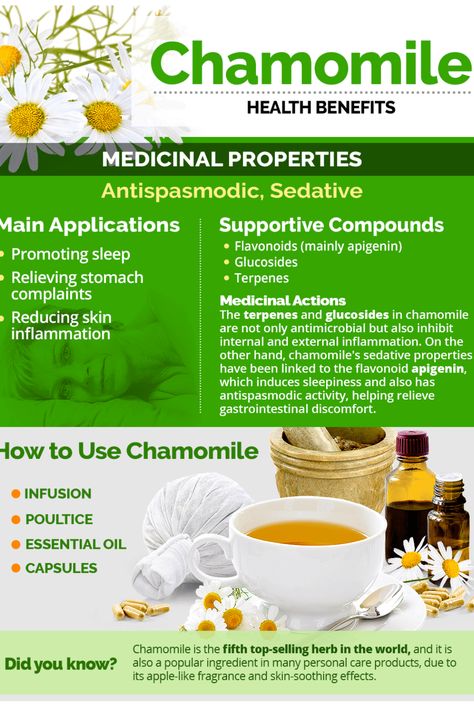
*This article summarizes the best studies of evidence-based medicine over the years. However, it is not a guide to action, so before allowing yourself coffee during pregnancy, be sure to check with your doctor.
Chamomile during pregnancy. — 8 answers
I have a question, is it possible to drink chamomile tea if the package says contraindicated during pregnancy. But what about bloating, increased gas formation, which can bother all pregnant women? Here's what I found on the Internet...
Even today, this healing flower is used very often. Pharmacy chamomile has many medicinal properties, which makes it a very popular medicinal plant.
What to do? Does chamomile have a beneficial effect on pregnant women and the unborn child, or is it a serious threat to them? Today, Mamapedia.com.ua experts will help answer these and other questions.
Why is chamomile useful during pregnancy?
Indeed, chamomile is desirable and useful even at a difficult and crucial moment, like pregnancy.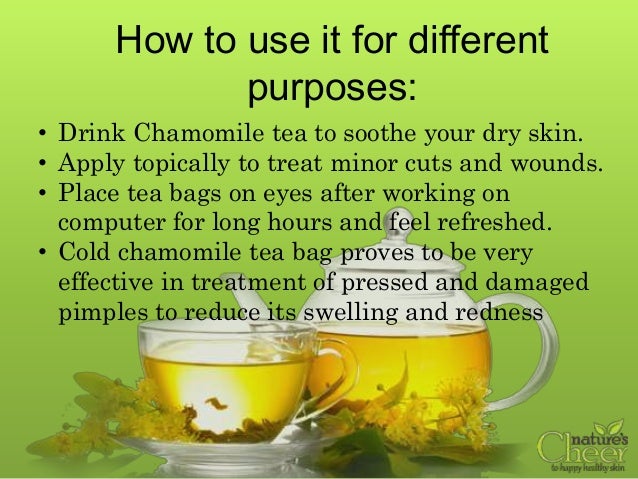 Also, when used correctly, it is very useful throughout the entire period of pregnancy. Therefore, if you are used to cosmetics based on this plant or drink chamomile tea, be calm. And if you were indifferent to chamomile before, we recommend making friends with it. After all, for a pregnant woman, she can do a favorable service.
Also, when used correctly, it is very useful throughout the entire period of pregnancy. Therefore, if you are used to cosmetics based on this plant or drink chamomile tea, be calm. And if you were indifferent to chamomile before, we recommend making friends with it. After all, for a pregnant woman, she can do a favorable service.
Here is a list of what chamomile can do during pregnancy:
- It is a source of magnesium and calcium.
- Reduces joint inflammation.
- In case of inflammation and diseases of the genital organs, infusions and decoctions of chamomile can be used for baths, compresses, douching and washing.
- In case of respiratory diseases, inhale and gargle with chamomile.
- In diseases of the oral cavity and stomatitis, rinsing with a decoction of chamomile is recommended.
- Has a bactericidal, antiseptic, wound-healing effect, therefore it is recommended for washing the female genital organs, rinsing the mouth, for treating skin inflammations and wounds.
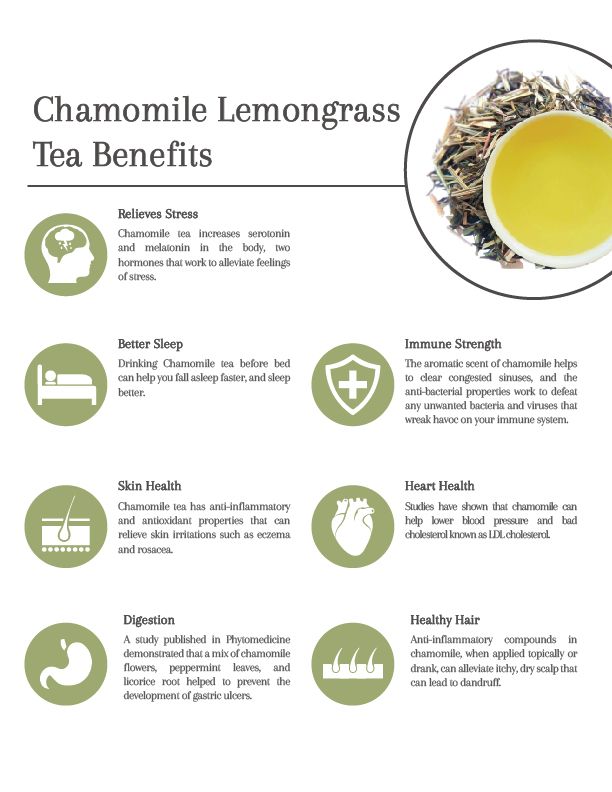
- May relieve signs of toxicity.
- Helps with constipation, gas, bloating.
- Pain relief: headaches, stomach cramps.
- Calms the nervous system: a wonderful way to relieve anxiety, overexcitation, stress, overcome depression or apathy.
Warning for pregnant mothers
We see that the list of chamomile's actions is long, so we should not forget about it at the time of pregnancy.
However, in order to extract only benefits from this plant, you need to use it correctly. As for external use, individual intolerance to chamomile can cause. Regarding teas and decoctions, you need to be very careful.
As for pure chamomile tea, you need to make a weak infusion and in no case abuse it. A pregnant woman can only afford two glasses of this drink per day. Excessive use of the plant inside can affect the increase in preterm labor or the tone of the uterus. This is because chamomile infusions and decoctions promote the production of estrogens.